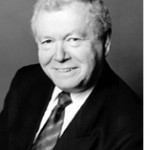By Rabbi Dow Marmur

JERUSALEM — Early on in his new book about Yossi Beilin and the failed peace process (English title: The Left-Wing’s Sorrow), Avi Shilon, the historian of modern Israel, makes the point that you cannot remove the religious dimension in seeking to make peace between Israelis and Palestinians. Even if you have no interest, for example, in the Temple Mount, you have to fight for making sure that it comes into the sovereignty of your side. And this makes the dispute so intractable.
When Avi Gabbay, the new leader of Israel’s Labour Party says that it had forgotten what it means to be Jewish, he probably has in mind the same thing: it’s not enough to advocate peace on the basis of sound liberal criteria without remembering Jewish religious sensibilities, however partisan they may be. This has been the stance of the secularists on Israel’s Right. It seems to be a winning formula and Gabbay doesn’t want to be left out.
We don’t know what he really believes and it doesn’t seem to matter. The same can be said about Prime Minister Netanyahu whom Gabbay wants to defeat in the next General Election. Mouthing pious words seems to take politicians farther than doing the right thing.
Shilon’s reflection is, of course, very relevant to the discussion of the current hot topic on the peace agenda: Trump’s recognition of Jerusalem as Israel’s capital. However sensible it may be to raise objections about the timing of the announcement and about the likely adverse effect on the much heralded US peace initiative, the enthusiasm of Jews in Israel, whether secular or not, is enormous because this kind of religious stance has never left them.
And because the corresponding religious dimension hasn’t left the Palestinians either, whether they are religious or not, their rage is there for all to see.
To repeat: the Jewish religious dimension in this context is the one articulated by nationalist Orthodox Jews and repeated by those who court them: Netanyahu, Gabbay et.al.
The few exponents of religious Judaism who believe that peace is possible by respecting Palestinian claims tend to argue that leaving things unsaid, or at least not specific, may be a way of making progress. A final peace agreement may not be attainable because both sides demand total acceptance of their position, but some kind of armistice can be attained enabling the parties to continue to state their final objectives while settling for interim measures. Waiting for Messianic times and God to fulfill the promise, saying nothing about Jerusalem now may have been the prudent thing to do.
I understand the few Orthodox peaceniks who advocate that kind of position. They say that this is the way of bringing religion into politics: not to make doctrinaire claims but settle for good behavior and common sense letting God, not the politicians, be the Final Arbiter.
It’s akin to the liberal stance that Reform and like-minded Jews in the Diaspora advocate. Hence the outrage in the Establishment quarters in Israel about the official reaction of the leadership of Reform Judaism in North America that criticized Trump instead of getting enthusiastic about Jerusalem as the capital of the Jewish State whatever the consequences.
The religious dimension Israelis have in mind may not be what Diaspora Jews believe in.
*
Rabbi Marmur is spiritual leader emeritus of Holy Blossom Temple in Toronto. He may be contacted via dow.marmur@sdjewishworld.com